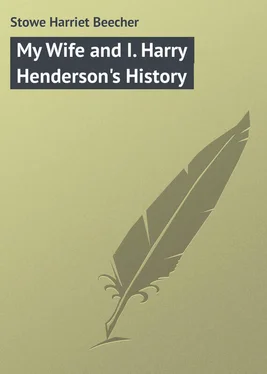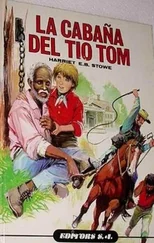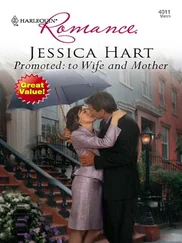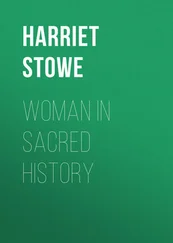Harriet Stowe - My Wife and I. Harry Henderson's History
Здесь есть возможность читать онлайн «Harriet Stowe - My Wife and I. Harry Henderson's History» — ознакомительный отрывок электронной книги совершенно бесплатно, а после прочтения отрывка купить полную версию. В некоторых случаях можно слушать аудио, скачать через торрент в формате fb2 и присутствует краткое содержание. ISBN: , Издательство: Иностранный паблик, Жанр: foreign_prose, foreign_language, на английском языке. Описание произведения, (предисловие) а так же отзывы посетителей доступны на портале библиотеки ЛибКат.
- Название:My Wife and I. Harry Henderson's History
- Автор:
- Издательство:Иностранный паблик
- Жанр:
- Год:неизвестен
- ISBN:http://www.gutenberg.org/ebooks/47874
- Рейтинг книги:5 / 5. Голосов: 1
-
Избранное:Добавить в избранное
- Отзывы:
-
Ваша оценка:
- 100
- 1
- 2
- 3
- 4
- 5
My Wife and I. Harry Henderson's History: краткое содержание, описание и аннотация
Предлагаем к чтению аннотацию, описание, краткое содержание или предисловие (зависит от того, что написал сам автор книги «My Wife and I. Harry Henderson's History»). Если вы не нашли необходимую информацию о книге — напишите в комментариях, мы постараемся отыскать её.
My Wife and I. Harry Henderson's History — читать онлайн ознакомительный отрывок
Ниже представлен текст книги, разбитый по страницам. Система сохранения места последней прочитанной страницы, позволяет с удобством читать онлайн бесплатно книгу «My Wife and I. Harry Henderson's History», без необходимости каждый раз заново искать на чём Вы остановились. Поставьте закладку, и сможете в любой момент перейти на страницу, на которой закончили чтение.
Интервал:
Закладка:
The daily bread question, or how to get a living, – the ambitious heavings, or the kingdoms of the world and the glory of them, all to be got by some yielding to Satan, – the ostentatious impulse to come down on the world with a rush and a sensation, – these are mirrored in a young man's smaller life just as they were in that great life. The whole Heavens can be reflected in the little pool as in the broad ocean!
All these elements of unrest had been boiling in my mind during the last year. Who wants to be nothing in the great world? No young man at this time of his course. The wisdom of becoming nothing that he may possess all things is too high for this stage of immaturity.
I came into college as simple, and contented, and satisfied, as a huckleberry bush in a sweet-fern pasture. I felt rich enough for all I wanted to do, and my path of life lay before me defined with great simplicity.
But my intimacy with Miss Ellery, her marriage and all that pertained to it, had brought before my eyes the world of wealth and fashion, a world which a young collegian may try to despise, and about which he may write the most disparaging moral reflections, but which has, after all, its power to trouble his soul. The consciousness of being gloveless, and threadbare in toilet, comes over one in certain atmospheres, as the consciousness of nakedness to Adam and Eve. It is true that in the institution where I attended, as in many other rural colleges in New England, I was backed up by a majority of healthy-minded, hardy men, of real mark and worth, children of honest toil and self-respecting poverty, who were bravely working their way up through education to the prizes and attainments of life. Simple economies were therefore well understood and respected in the college.
Nevertheless there is something not altogether vulgar in the attractions which wealth enables one to throw around himself. I was a social favorite in college, and took a stand among my fellows as a writer and speaker, and so had a considerable share of that sincere sort of flattery which college boys lavish on each other. I was invited and made much of by some whose means were ample, whose apartments were luxuriously and tastefully furnished, but who were none the less good scholars and high-minded gentlemanly fellows.
In their vacations I had been invited to their houses, and had seen all the refinement, the repose, the ease and the quietude that comes from the possession of wealth in the hands of those who know how to use it. Wealth in such hands gives opportunities of the broadest culture, ability to live in the wisest manner, freedom to choose the healthiest surroundings both for mind and body, not restricted by considerations of expense; and how could I think it anything else than an object ardently to be sought?
It is true, my rich friends seemed equally to enjoy the vacations in my little, plain, mountain home. People generally are insensible to advantages they have always enjoyed, and have an appetite for something new; so the homely rusticity of our house, the perfect freedom from conventionalities, the wild, mountain scenery, the wholesome detail of farm life, the barn with its sweet stores of hay, and its nooks and corners and hiding places, the gathering in of our apples, and the making of cider, the corn-huskings and Thanksgiving frolics, seemed to have their interest and delights to them, and they often told me I was a lucky fellow to be born to such pleasant surroundings. But I thought within myself, It is easy to say this when you feel the control of thousands in your pocket, when if you are tired you can go to any land or country of the earth for change of scene.
In fact we see in history that the crusade of St. Francis in favor of Poverty was not begun by a poor man, but by a young nobleman who had known nothing hitherto but wealth and luxury. It is from the rich, if from any, that our grasping age must learn renunciation and simplicity. It is easier to renounce a good which one has tried and of which one knows all the attendant thorns and stings than to renounce one that has been only painted by the imagination, and whose want has been keenly felt. When I came to the College I came from the controlling power of home influences. At an early age I had felt the strength of that sphere of spirituality that encircled the lives of my parents, and, being very receptive and sympathetic, had reflected in my childish nature all their feelings.
I had renounced the world before I knew what the world was. I had joined my father's church and was looked upon as one destined in time to take up my father's work of the ministry.
Four years had passed and I came back to my mother, weakened and doubting, indisposed to take up the holy work to which in my early days I looked forward with enthusiasm, yet with all the sadness which comes from indecision as to one's life-object.
To be a minister is to embrace a life of poverty, of toil, of self-denial. To do this, not only with cheerfulness but with an enthusiasm which shall bear down all before it, which shall elevate it into the region of moral poetry and ideality, requires a fervid, unshaken faith. The man must feel the power of an endless life, be lifted above things material and temporal to things sublime and eternal.
Now it is one peculiarity of the professors of the Christian religion that they have not, at least of late years, arranged their system of education with any wise adaptation to having their young men come out of it Christians . In this they differ from many other religionists. The Brahmins educate their sons so that they shall infallibly become Brahmins; the Jews so that they shall infallibly be Jews; the Mohammedans so that they shall be Mohammedans; but the Christians educate their sons so that nearly half of them turn out unbelievers – professors of no religion at all.
There is a book which the Christian world unite in declaring to be an infallible revelation from Heaven. It has been the judgment of critics that the various writings in this volume excel other writings in point of mere literary merit as much as they do in purity and elevation of the moral sentiment. Yet it is remarkable that the critical study of these sacred writings in their original tongues is not in most of our Christian colleges considered as an essential part of the education of a Christian gentleman, while the heathen literature of Greece and Rome is treated as something indispensable, and to be gained at all hazards.
It is a fact that from the time that the boy begins to fit for college, his mind is so driven and pressed with the effort to acquire the classical literature, that there is no time to acquire the literature of the Bible, neither is it associated in his mind with the dignity and respect of a classical attainment. He must be familiar with Horace and Ovid, with Cicero and Plato, Æschylus and Homer in their original tongues, but the majestic poetry of the Old Testament, and its sages and seers and prophets, become with every advancing year more unintelligible to him. A thoroughly educated graduate of most of our colleges is unprepared to read intelligently many parts of Isaiah or Ezekiel or Paul's epistles. The scripture lessons of the church service often strike on his ear as a strange quaint babble of peculiar sounds, without rhyme or reason. Uncultured and uneducated in all that should enable him to understand them, he is only preserved by a sort of educational awe from regarding them as the jargon of barbarians.
Meanwhile, this literature of the Bible, strange, weird, sibylline, and full of unfulfilled needs and requirements of study, is being assailed in detail through all the courses of a boy's college life. The objections to it as a divine revelation relate to critical questions in languages of which he is ignorant, and yet they are everywhere; they are in the air he breathes, they permeate all literature, they enter into modern science, they disintegrate and wear away, bit by bit, his reverence and his confidence.
Читать дальшеИнтервал:
Закладка:
Похожие книги на «My Wife and I. Harry Henderson's History»
Представляем Вашему вниманию похожие книги на «My Wife and I. Harry Henderson's History» списком для выбора. Мы отобрали схожую по названию и смыслу литературу в надежде предоставить читателям больше вариантов отыскать новые, интересные, ещё непрочитанные произведения.
Обсуждение, отзывы о книге «My Wife and I. Harry Henderson's History» и просто собственные мнения читателей. Оставьте ваши комментарии, напишите, что Вы думаете о произведении, его смысле или главных героях. Укажите что конкретно понравилось, а что нет, и почему Вы так считаете.












